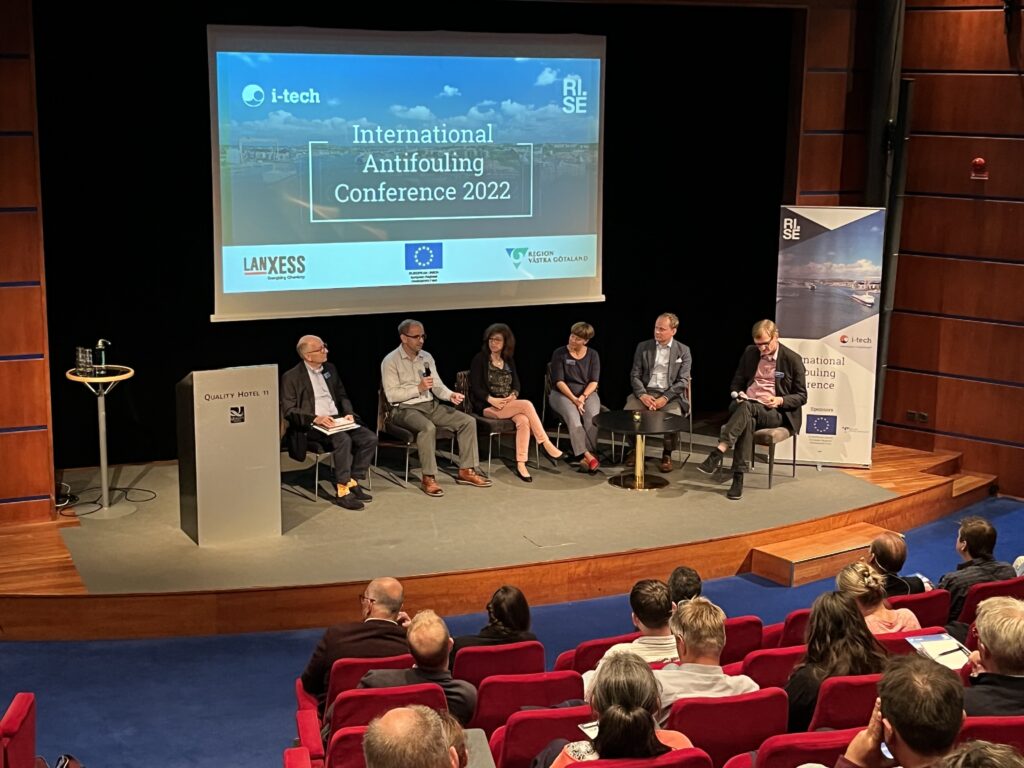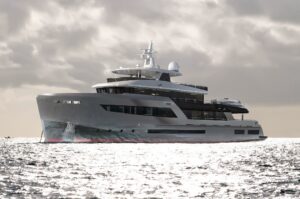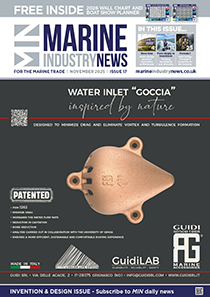In Focus: International Antifouling Conference to return in 2023

The second International Antifouling Conference will be held on 13-14 September in the iconic Eriksberg shipyard area in Gothenburg, Sweden. The conference brings the best minds in the antifouling coatings industry, ship operators and academia together to explore collaborative pathways and novel approaches at a time when biofouling risk is intensifying on a global scale.
I-Tech AB, the developer of antifouling biotechnology for marine coatings, Selektope and the Research Institutes of Sweden (RISE) will host the International Antifouling Conference 2023 in Gothenburg for a second year. The conference is one of the key platforms for antifouling coating experts, academia, and end users to discuss challenges, solutions, and approaches towards marine biofouling prevention.
Keynote addresses will be delivered by representatives from Jotun, Stolt Tankers, Hapag Lloyd, Arxada, and the Florida Institute of Technology.
Participants of the inaugural International Antifouling Conference in 2022 held the unanimous belief that collaboration between technology providers and their suppliers, in addition to the expansion of the antifouling toolbox to include emerging novel solutions, are key to ensuring that antifouling coating solutions offer the best protection in intensifying biofouling conditions.
Dr. Markus Hoffmann, technical director at I-Tech, comments: “This conference provides a much-needed platform for the R&D community from the marine coatings sector to meet, with the bonus that academia and end users participate and provide their vital insights. Having a platform to discuss and gain inspiration from learning about novel solutions to ensure coatings are reliable and as high performance as possible is particularly important at this moment in time.”
As the maritime industry takes steps towards significantly decarbonising, the risk of marine biofouling accumulation on underwater surfaces is posing an increasing threat to the reduction of gaseous exhaust emissions from vessels. Marine biofouling can be extremely detrimental to ship performance since it increases hydrodynamic drag when a vessel sails through water, resulting in vessels burning more fuel to maintain a set speed or suffering speed losses if operating on fixed shaft power.
Unfortunately, rising oceanic and coastal water temperatures are providing a more favourable environment for biofouling species to flourish. As such, the risk faced by vessels from the negative effects of biofouling will only intensify in coming years. While antifouling coatings provide the best line of defence against biofouling, the technology must continue to evolve to meet the changing needs of vessels now, and in the future.
The International Antifouling Conference is sponsored by Stena Teknik and Lanxess.
In addition to the full two-day conference programme, delegates of the International Antifouling Conference 2023 will also enjoy an optional visit to the research facilities of RISE which is included in the conference ticket.
Abstracts are currently being accepted from stakeholders interested in presenting at the International Antifouling Conference 2023, please visit the conference website for more details.










